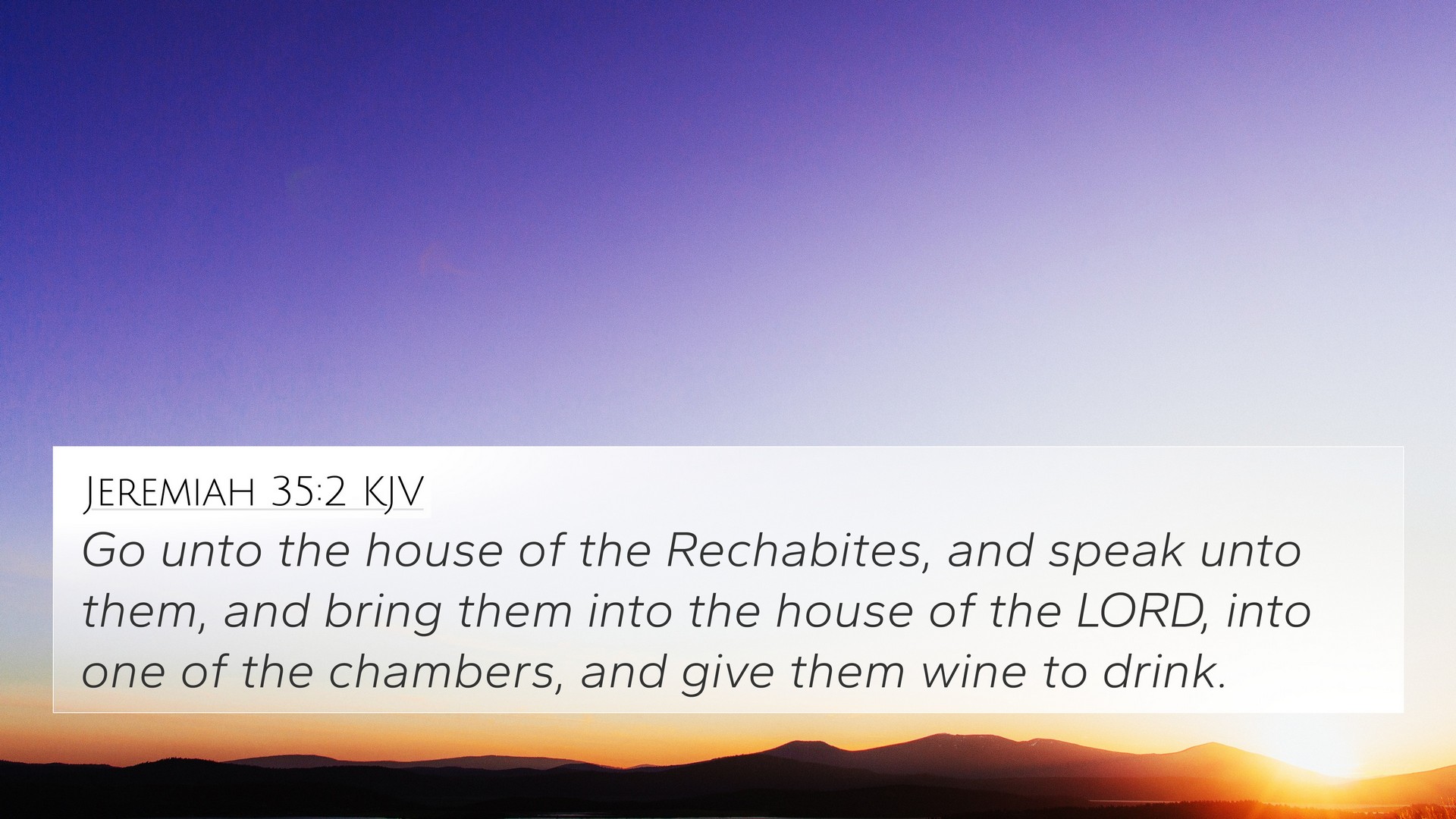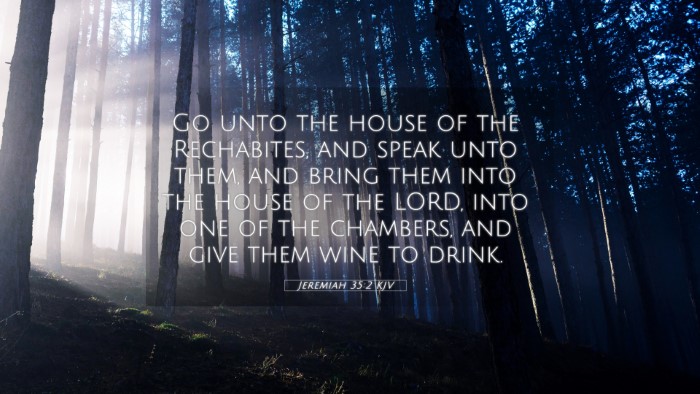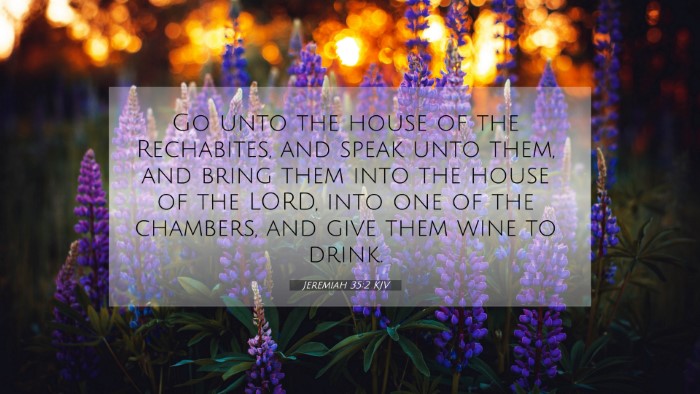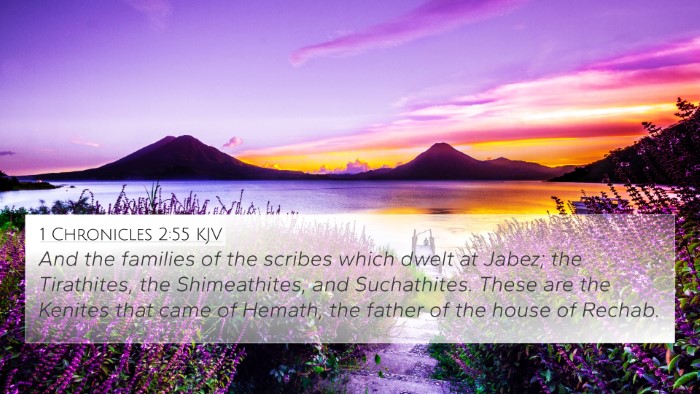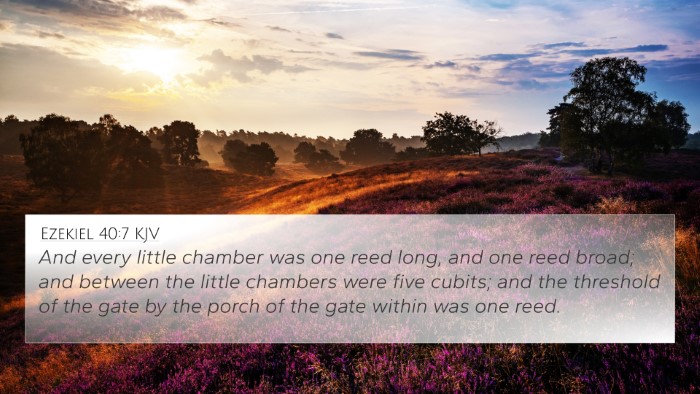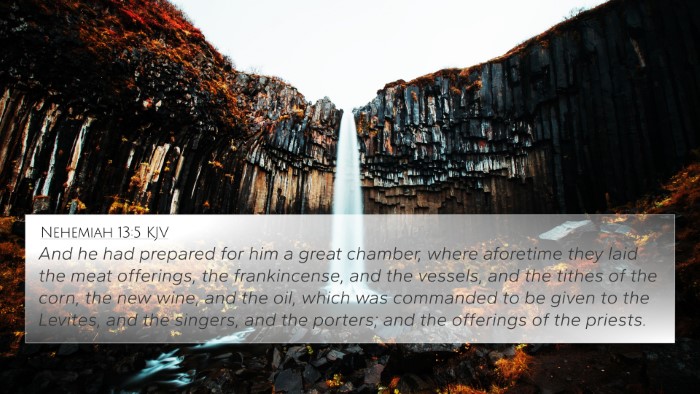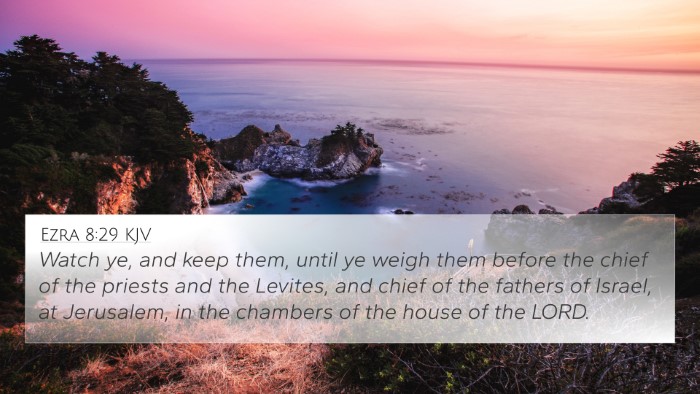Understanding Jeremiah 35:2
Jeremiah 35:2 states: "Go unto the house of the Rechabites, and speak unto them, and bring them into the house of the Lord, into one of the chambers, and give them wine to drink."
This verse sets the scene for a significant encounter that illustrates themes of obedience, faithfulness, and the contrast between God's commands and human traditions. The command given to Jeremiah by the Lord underscores the importance of understanding the Rechabites’ way of life and their refusal to partake in wine, symbolizing their fidelity to their ancestral vows.
Analysis and Commentary
Gathering insights from respected public domain commentaries, we can explore the deeper meanings and implications of this verse.
Matthew Henry's Commentary
Henry highlights the purpose of this visitation as one meant to contrast the fidelity of the Rechabites with Israel's infidelity. The Rechabites were noted for their strict adherence to the commands of their ancestors, and their presence in the temple serves as a prophetic illustration of the consequences of disobedience in Israel.
Albert Barnes' Notes
Barnes emphasizes the significance of the Rechabites' heritage and their chosen lifestyle as an example of faithful living. Their refusal to drink wine mirrors a commitment to God's purity and holiness, standing in stark contrast to Judah’s moral decline. Barnes argues that God uses this family as a living metaphor for obedience and the blessings tied to it.
Adam Clarke's Commentary
Clarke elaborates on the implications of drinking wine, noting that it can symbolize indulgence and distraction from God’s intentions. The act of bringing them into the house of the Lord suggests an invitation to examine their faith against the backdrop of Judah’s sin. Clarke sees the Rechabites as an example of how adherence to divine teachings transcends generations.
Cross-References to Consider
- Numbers 6:3-4 - Discusses the Nazarite vow, highlighting the commitment to abstain from wine.
- Isaiah 29:13 - Critiques the hollow worship practiced in Israel, paralleling the Rechabites' genuine devotion.
- Jeremiah 35:8-10 - Describes the Rechabites' steadfastness in obeying their ancestors' commands.
- Luke 1:15 - Refers to John the Baptist’s upbringing under a similar vow, emphasizing themes of dedication and holiness.
- Nahum 2:2 - Instills a message about the downfall of those who forsake God's ways compared to the fidelity of other groups.
- Matthew 5:37 - Jesus emphasizes the importance of keeping one's word, echoing the Rechabites' commitment.
- 1 Peter 1:16 - Calls believers to be holy as God is holy, akin to the Rechabite's lifestyle dedication.
Thematic Connections
The main themes represented in Jeremiah 35:2 resonate throughout the Bible, showcasing the necessity of faithfulness and the rejection of worldly temptations. We can further explore these themes through various methods:
- Utilizing bible concordance tools to demonstrate thematic Bible verse connections.
- Employing a bible cross-reference guide to discover inter-Biblical dialogues.
- Researching cross-reference Bible study methods to build bridges between Old Testament precedents and New Testament applications.
Conclusion
The insights gathered from Jeremiah 35:2 invite readers to appreciate the importance of faithfulness, both in personal commitments and in the collective life of God's people. As we engage with the verse through cross-referencing, we uncover a rich tapestry of Scripture that encourages deeper exploration and understanding.
